With approximately two weeks until the Rio Games open on August 5th, the fallout from a series of revelations of state-sponsored doping in Russian sport has caught many by surprise. It might have been a bombshell for some, but it wasn’t shocking at all for quite a few.
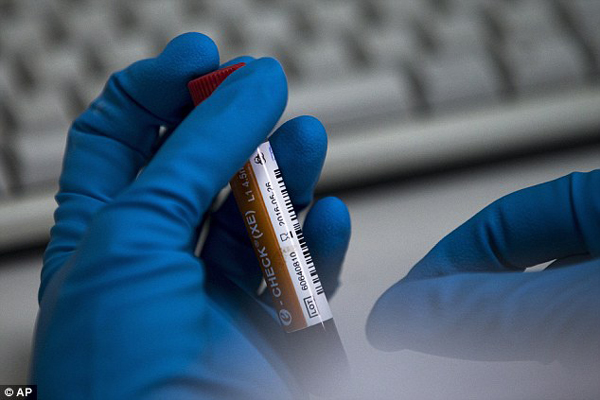 From 2012 to 2015 at least 577 positive tests were covered up across 30 different sports by Russia.Photo: AP
From 2012 to 2015 at least 577 positive tests were covered up across 30 different sports by Russia.Photo: APSo for the convenience of any average sport follower who might find this information a tad too overwhelming, how about I break this down for you lot.
Why cheat the system?
The current fiasco started immediately after the 2010 Winter Olympics in Vancouver, where a dreadful showing in the medal’s table drove the Russian government to opt for a foul way to turn the tide and lift Russia’s sagging reputation in global standing through sport.
How cheat the system?
Their plan was to dope their way out of this sporting slump by introducing a ‘disappearing positive methodology’ in an attempt to get around doping tests.
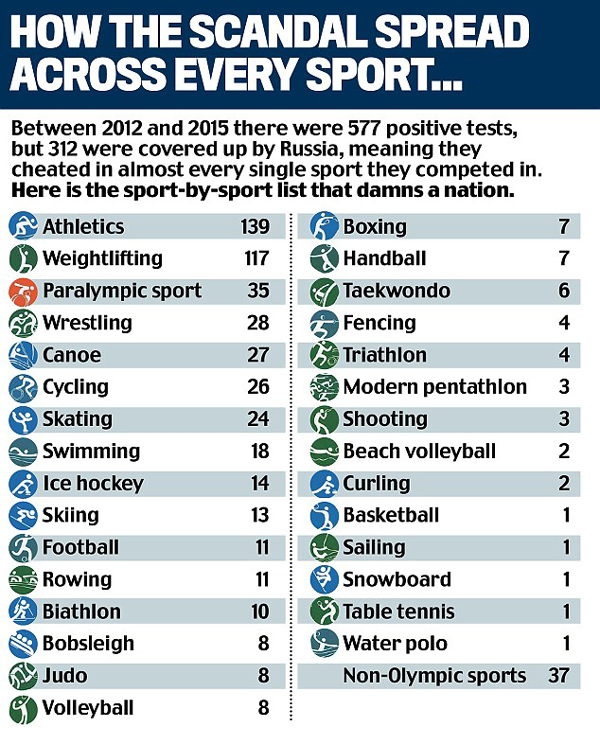 Photo: Daily Mail
Photo: Daily MailWho was cheating the system?
Any athlete who tested positive would be reported to the Russian deputy minister for sport, who in turn based on his/her potential for scoring medals at international events would either be reported as negative in Wada’s anti-doping management system, or left on his own to face regular doping proceedings.
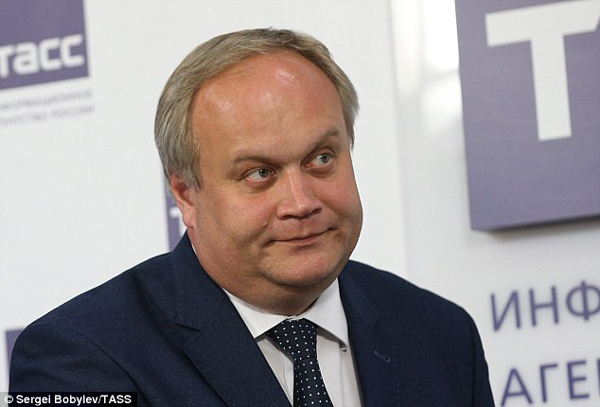 Yuri Nagornykh, appointed deputy minister of sport in 2011, was a key figure in Russia's doping cover-up.Photo: Sergei Bobylev/TASS
Yuri Nagornykh, appointed deputy minister of sport in 2011, was a key figure in Russia's doping cover-up.Photo: Sergei Bobylev/TASSHow were they cheating at international events or competition with independent observers?
In order to improve Russian sport performance by covering up doping, a state laboratory developed a steroid cocktail optimised to avoid detection. Named after a traditional Russian drink, the concoction was called ‘Duchess’.
While at international events where there were neutral officials such as the 2013 World Athletics Championships in Moscow and the 2014 Winter Olympics in Sochi, assistance was handed out by the Russian security agency FSB. The immensely powerful modern-day KGB helped Russian athletes cheat by sneakily swapping the post-event drug samples of Russian athletes.
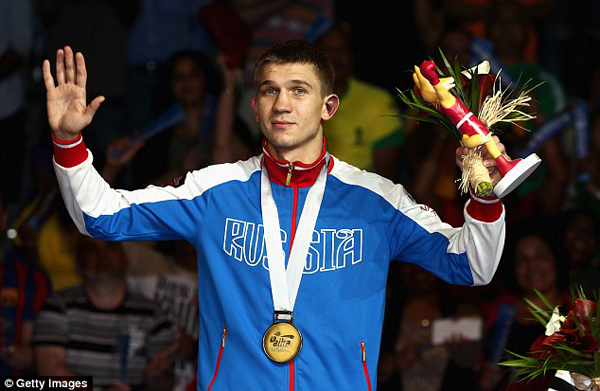 Russian boxer Vitaly Dunaytsev faces a ban from the Games following Monday's explosive revelations.Photo: Getty Images
Russian boxer Vitaly Dunaytsev faces a ban from the Games following Monday's explosive revelations.Photo: Getty ImagesHow did it all get exposed?
The whole dope-operation got uncovered when a Wada Commissioned report headed by Canadian lawyer Richard McLaren was released this Monday.
Confirming allegations of doping at the Sochi Olympics, The McLaren Report looked into claims made by Grigory Rodchenkov, the former head of Russia’s national anti-doping laboratory that he doped dozens of athletes in the build-up to the Sochi Games at Kremilin’s behest.
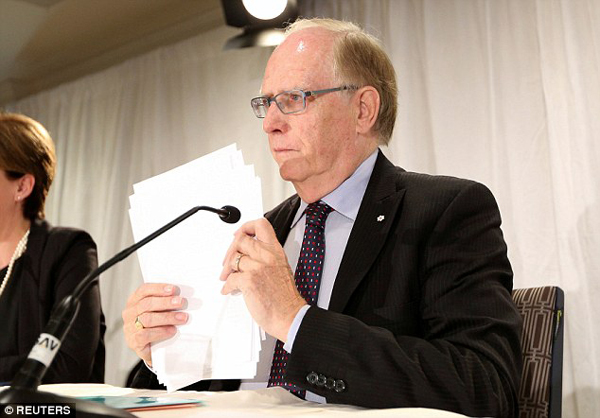 Richard McLaren's report has exposed a wide-reaching state-sponsored doping scandal in Russian sport.Photo: Reuters
Richard McLaren's report has exposed a wide-reaching state-sponsored doping scandal in Russian sport.Photo: ReutersWhat now?
The International Olympic Committee (IOC) is now exploring legal options before it decides to ban all Russian competitors for the global showpiece, which starts on August 5th.
IOC also plans to re-test all Russians who competed at the 2014 Winter Olympics in Sochi.
“The findings of the report show a shocking and unprecedented attack on the integrity of sports and on the Olympic Games,” said the IOC President, Thomas Bach.
“Therefore, the IOC will not hesitate to take the toughest sanctions available against any individual or organisation implicated.”
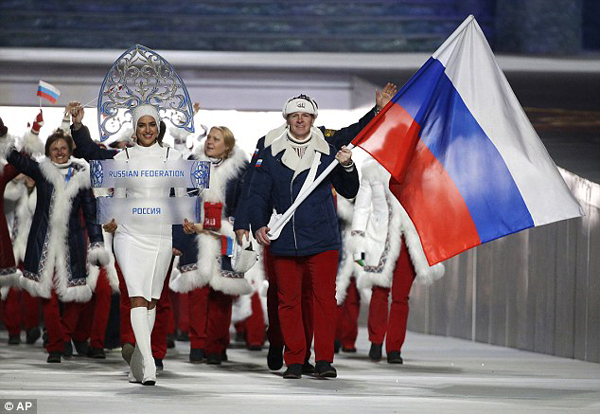 The doping programme was planned from 2011 and continued through the Sochi Winter Olympics in 2014.Photo: AP
The doping programme was planned from 2011 and continued through the Sochi Winter Olympics in 2014.Photo: APHow has the Kremlin responded?
The Russian government is notoriously slow in reacting to issues raised abroad, but considering how President Vladimir V Putin responded within hours to the accusations that his government ran a covert doping program, international sports competitions seem pretty important to his policy of raising Russia’s prestige after the chaotic collapse of the Soviet Union.
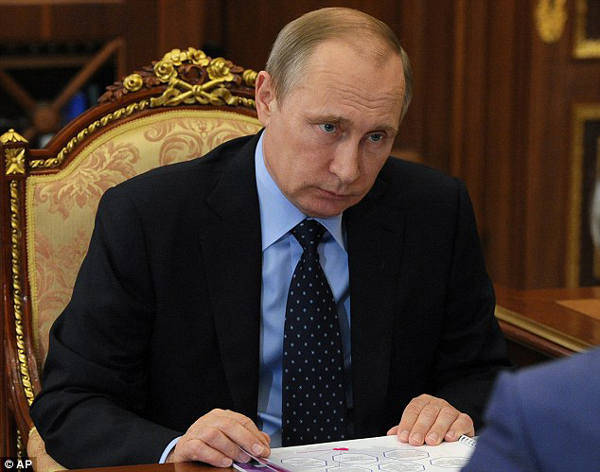 President Vladimir Putin.Photo: AP
President Vladimir Putin.Photo: APIn his reaction, the president remarked,
“Today we see a dangerous relapse of politics intruding into sports.”
In all likelihood pointing towards the United States and its perceived hand in pushing a politically charged sporting decision.
The Russian government did however suspend a number of senior sports officials following the publication of the McLaren report.
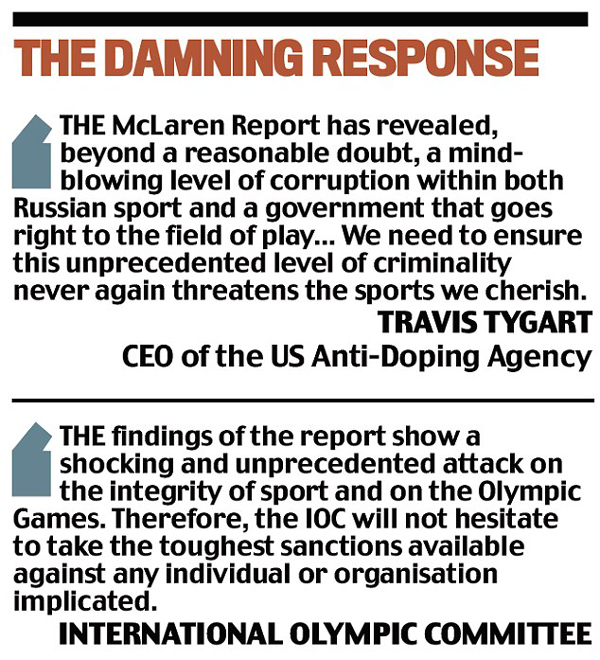 Photo: Daily Mail
Photo: Daily Mail[poll id="652"]

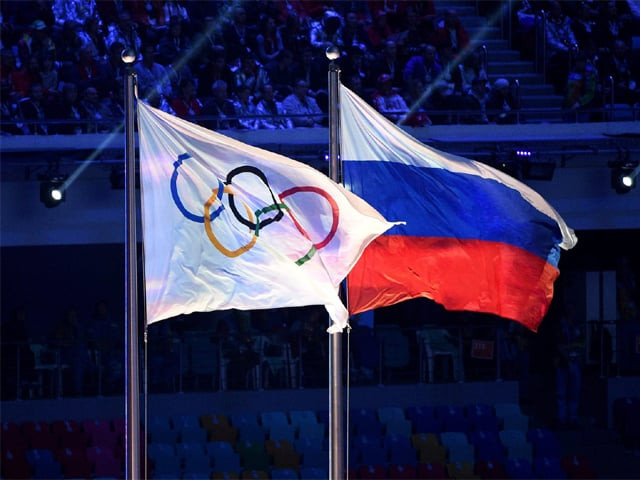

COMMENTS
Comments are moderated and generally will be posted if they are on-topic and not abusive.
For more information, please see our Comments FAQ